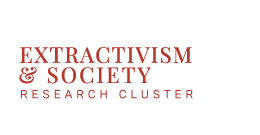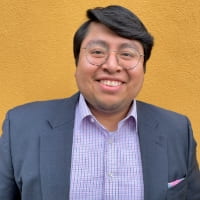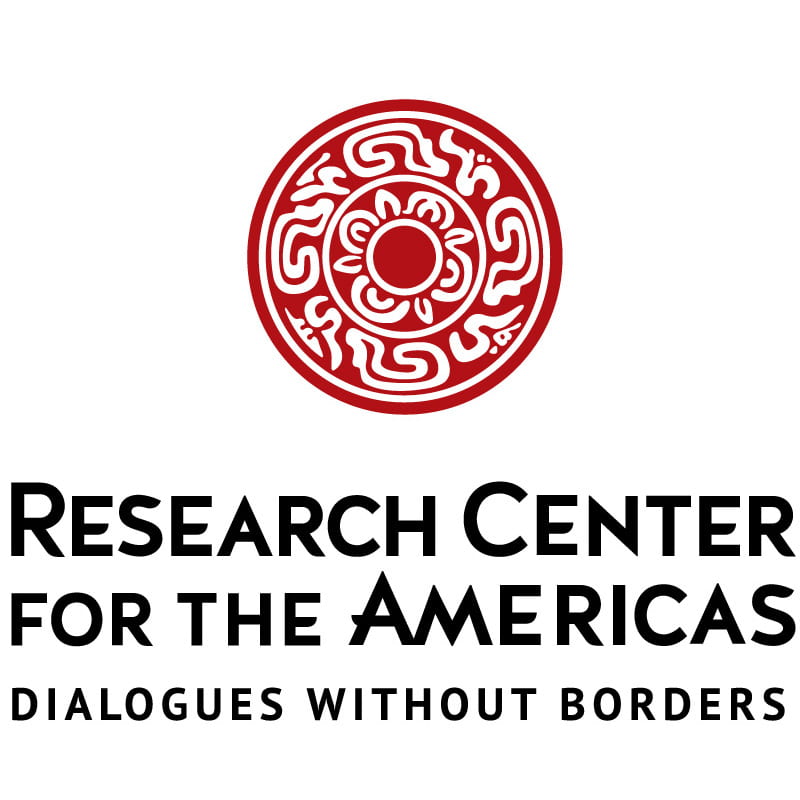About Us
The Cluster Extractivism and Society, was formed in 2019 with the goal of bringing together scholars, students, and community activists to produce “knowledge for action.” We need better analytical tools to unravel the emerging nature of socio-environmental and socio-territorial conflicts in the Americas. We opt for collaborative approaches that pay close attention to how discursive and material dimensions interact in these conflicts. Such a “critical cultural political economy” perspective helps us understand the relation between extractivism and society is shaped by multi-faceted power relations, constantly being enacted and contested. Since its creation, the Research Cluster has become a thriving space for intellectual engagement with a transdisciplinary perspective to study extractivism and socio-environmental conflicts in the Americas.
Extractive industries underlie many of the most pressing social and environmental challenges of our time. Oil, gas, minerals and metals form the backbone of the global economy, technological innovation, and national development strategies. As this sector booms, extractive projects degrade environments, spark local socio-ecological conflicts, and provoke transnational struggles for environmental justice. Socio-environmental conflicts continue growing in number and scope in the Americas. One reason is that transnational corporations and governments are racing to control strategic resources including minerals, land, water, seeds, genetic materials, and knowledge. The Environmental Justice Atlas for example, currently tracks over one thousand socio-environmental conflicts in Latin America and the Caribbean, a number that significantly undercounts the actual conflicts unfolding within each nation-state. While the territorial and material dimensions of such struggles are already the object of several studies, their importance for the resignification of capitalism and extractivism in the semiotic struggle that surrounds the most recent crisis remains overlooked and undertheorized.
Our research cluster aims to deploy a critical cultural political economy approach to understand socio-ecological and socio-territorial conflicts in the Americas. The unprecedented COVID-19 crisis compounds extractive conflicts and fuels potential reimaginings for a more socio-ecologically sustainable and just world. We consider that the rich traditions of Latin American critical thought can be renewed and enriched by a critical cultural political economy perspective which makes three fundamental insights:
- Social reality is co-constituted by material and semiotic practices. Although studies can focus on different aspects of social reality, it should not obliviate the constant co-determination of both dimensions.
- One of the core contradictions of capitalism is that it does not reproduce itself on the basis of the commodity form alone, and constantly seeks to redraw the boundaries between the commodified and non- commodified realms in a social formation in an attempt to overcome its own contradictions;
- Capitalism’s inherently contradictory and unstable character makes it prone to crises in which new imaginaries, ideas, and rationalities, are constantly being produced in efforts to restore hegemony and establish arrangements that contribute towards capital reproduction on a more or less manageable manner;
We seek to improve the understanding of extractivism and the socio- environmental struggles it generates by using these insights.Identifying the intra-related political economies, ideologies, and ecologies that underlie the extractive sector and the struggles it generates is fundamental for understanding and posing alternatives to extractive development in contemporary Latin America.
For the 2020-2023 period, the revised objectives of the Extravism and Society Research Cluster are:
Objective 1: Conduct research in different Latin American countries to shed light on the multi-faceted strategies corporations and often the state fashion and deploy to legitimize extractivist activities in a context of social opposition to extractivism.
Objective 2: Enhance the conceptualization and application of the transdisciplinary perspective attentive to the interconnected material and semiotic dimensions known as Critical Cultural Political Economy in the study of extractivism in the Americas as well as the constellation of associated activities.
Objective 3: Develop a vibrant network of scholars, scholar/practitioners and socio-territorial defender/activists that is attentive to the innovative strategies being deployed by transnational extractivist capital, state agencies, and local communities and their allies, in contemporary socio-environmental conflicts in the Americas.
Objective 4: Share teaching strategies, methods, curricula, materials and activities among Cluster members that enhance learning environments where students and others can actively and critically engage in the study of socio-environmental conflicts.









